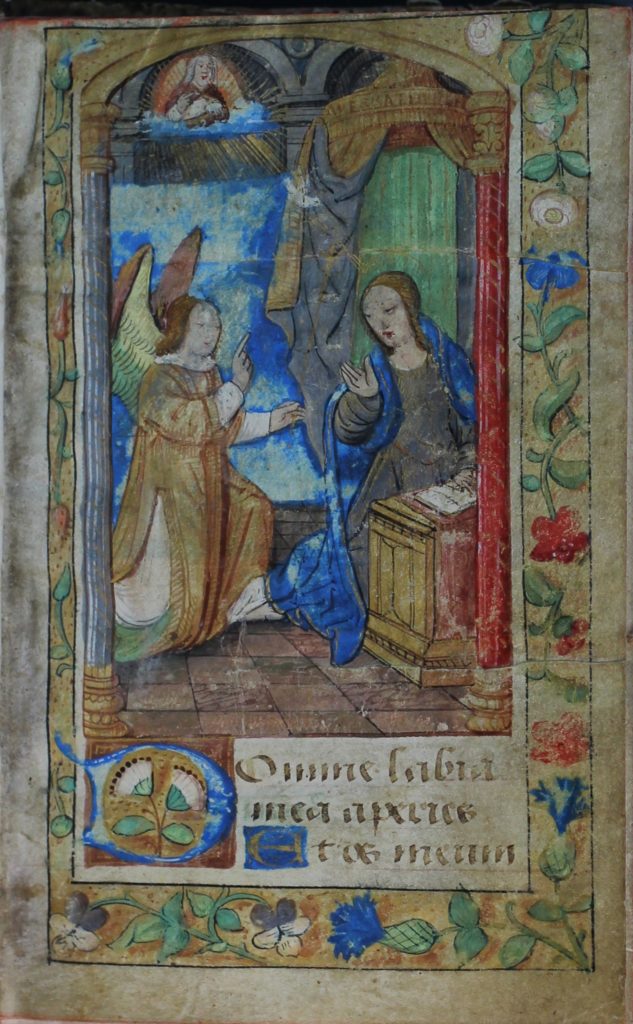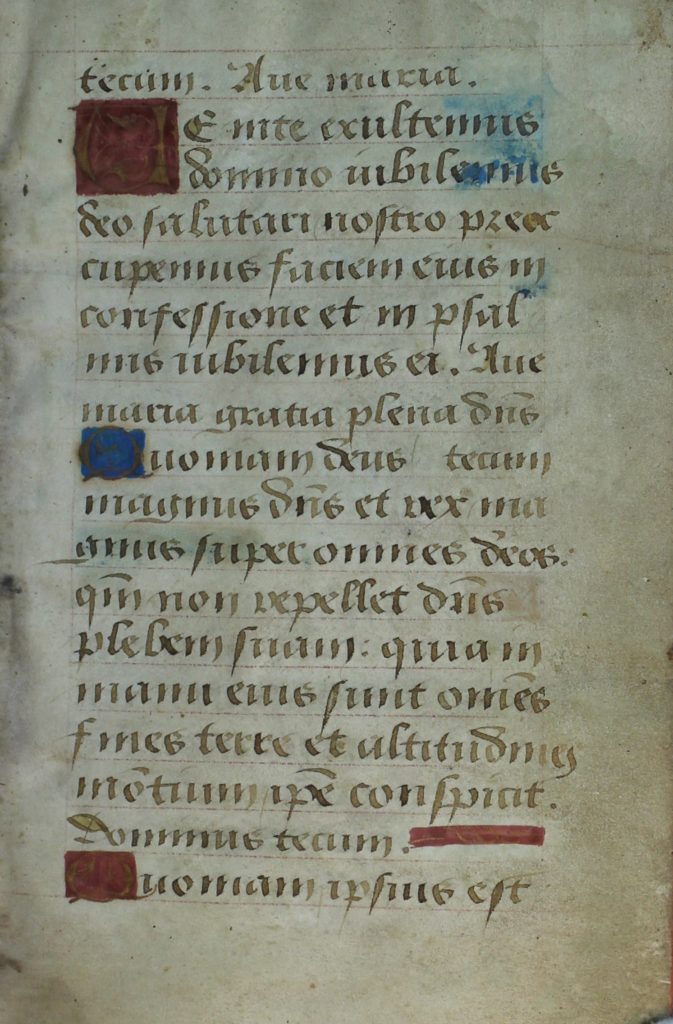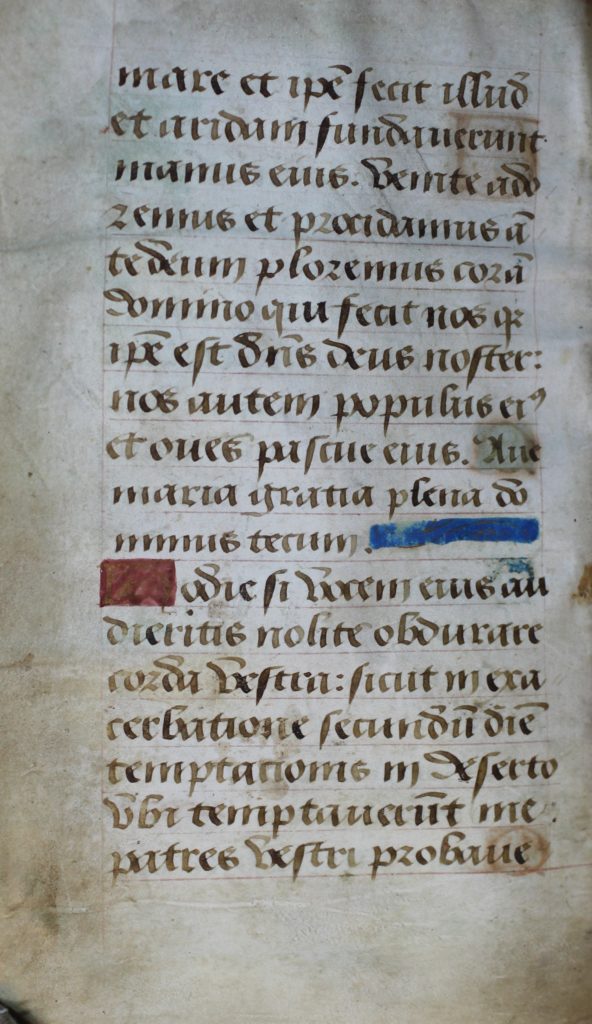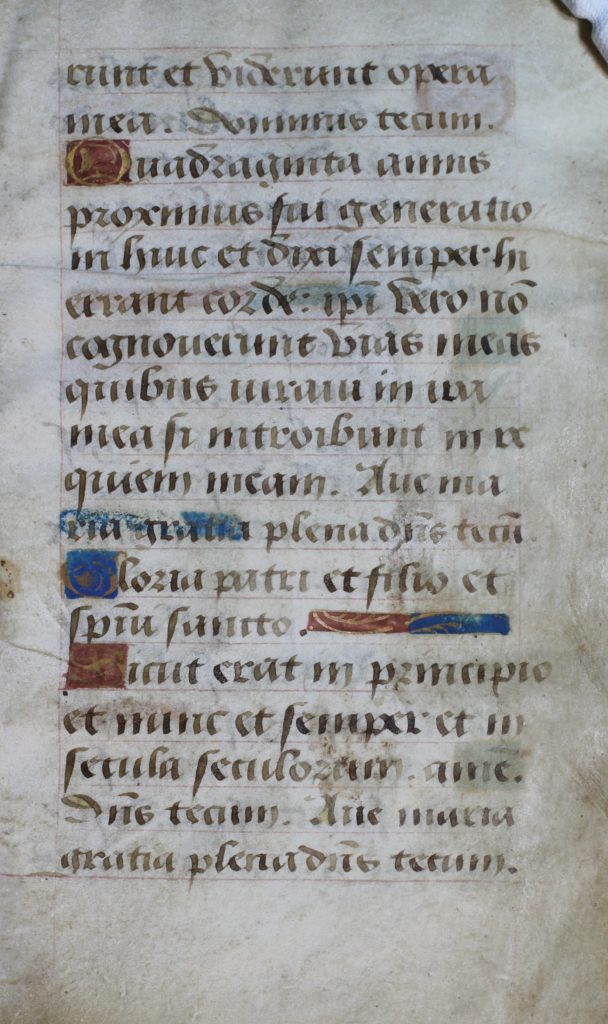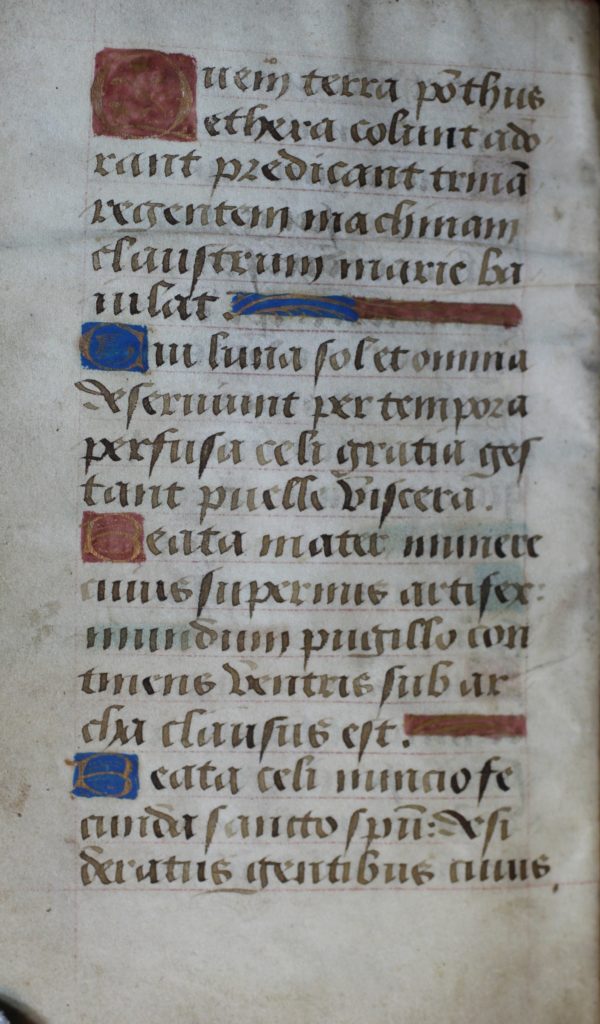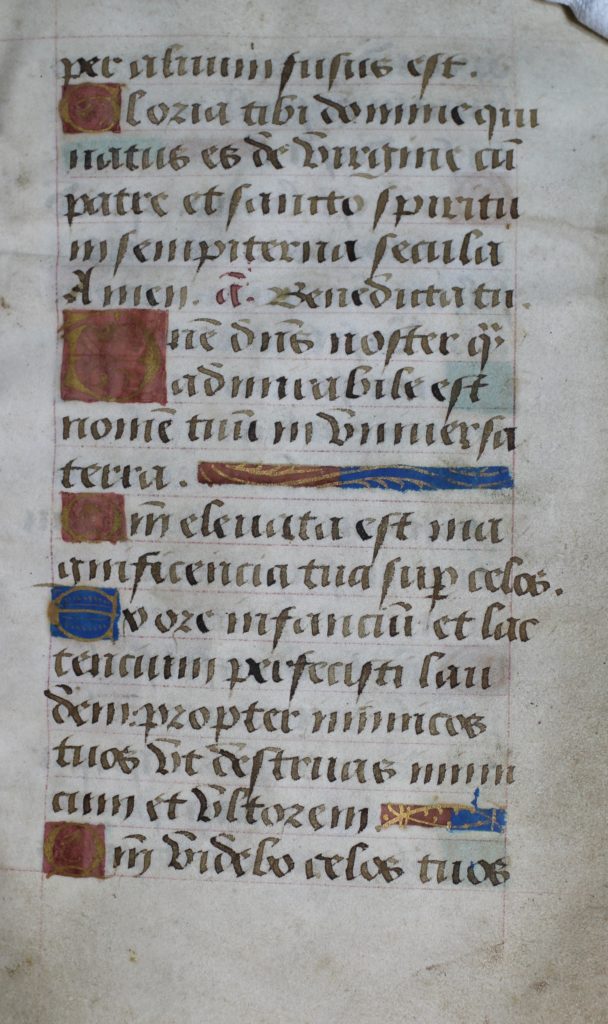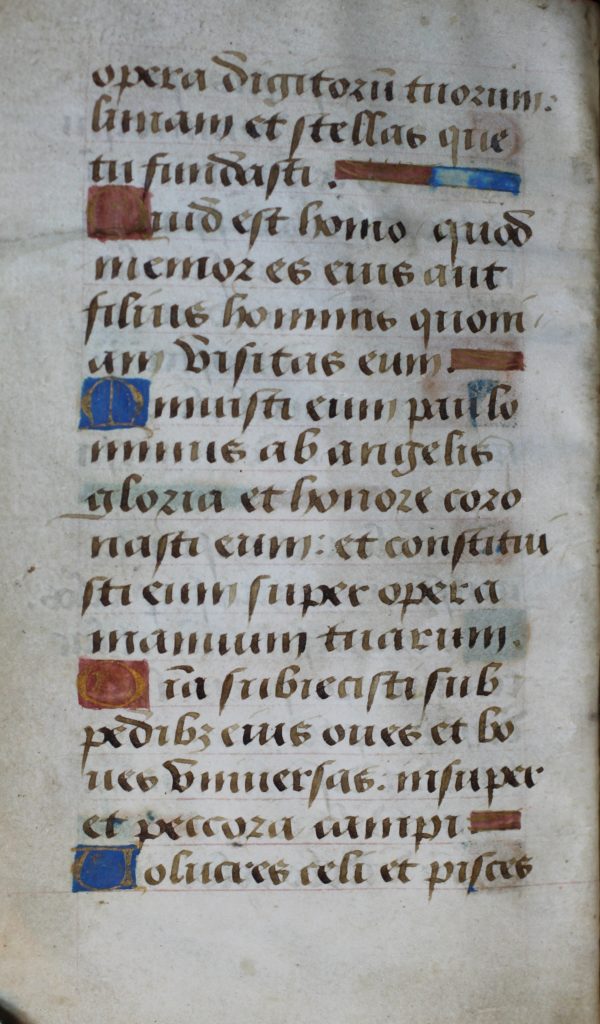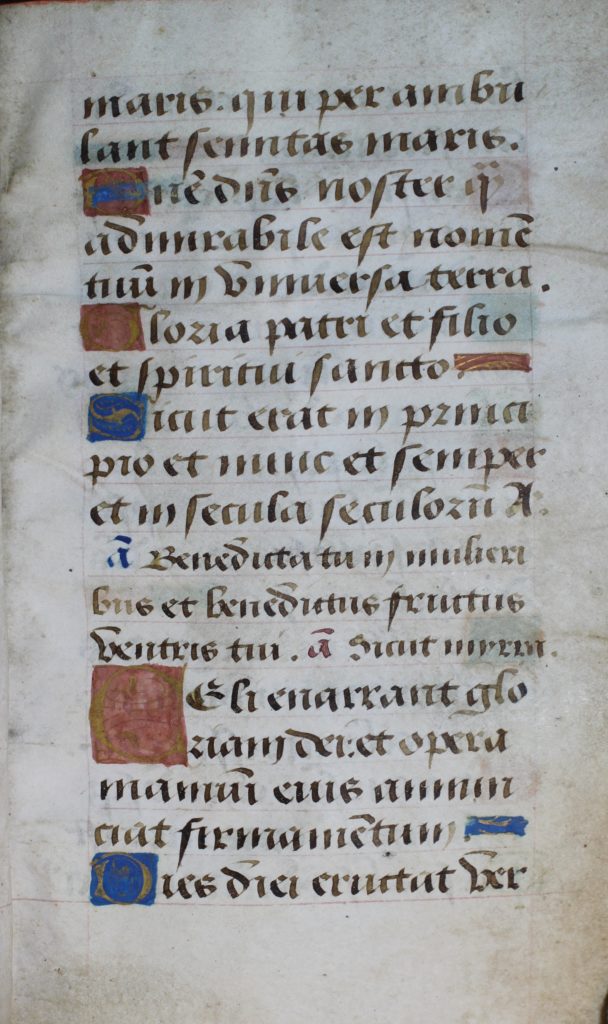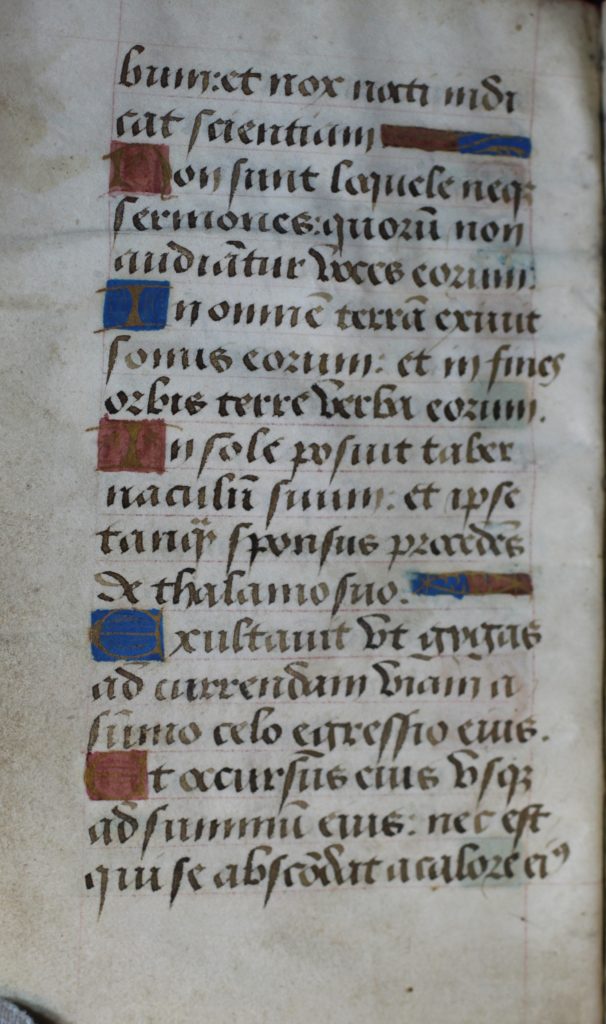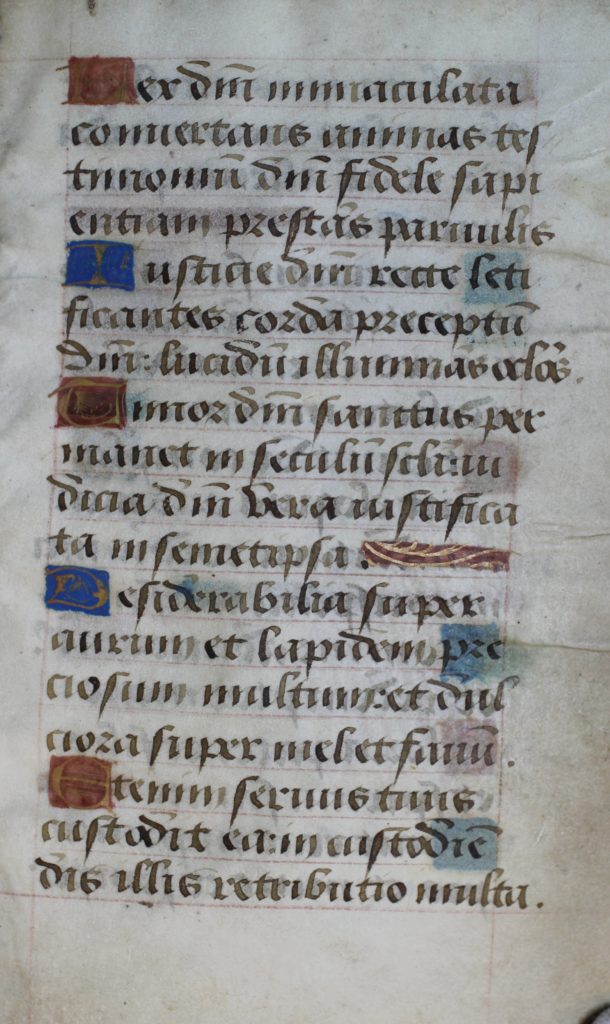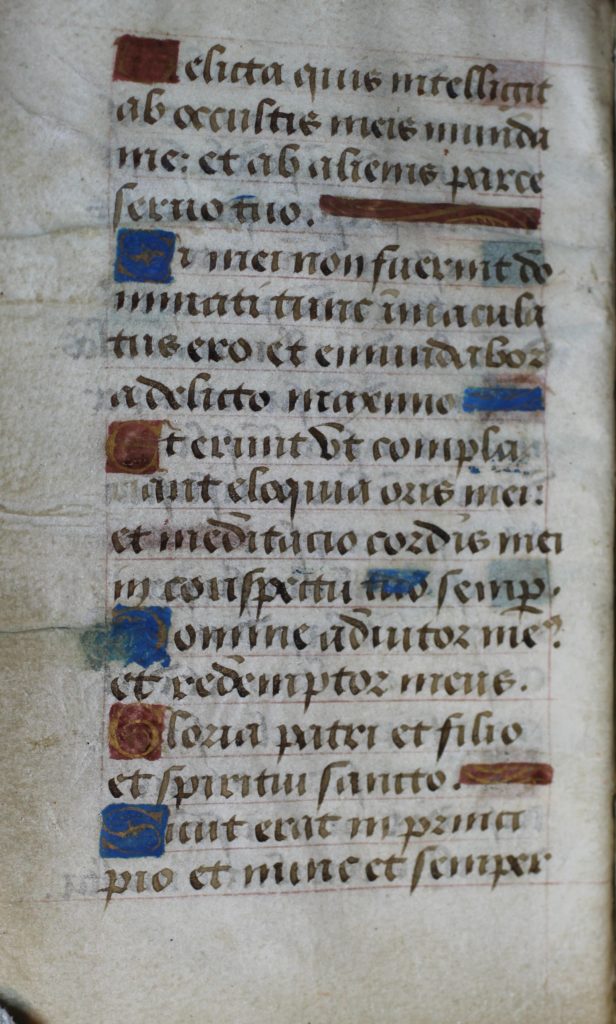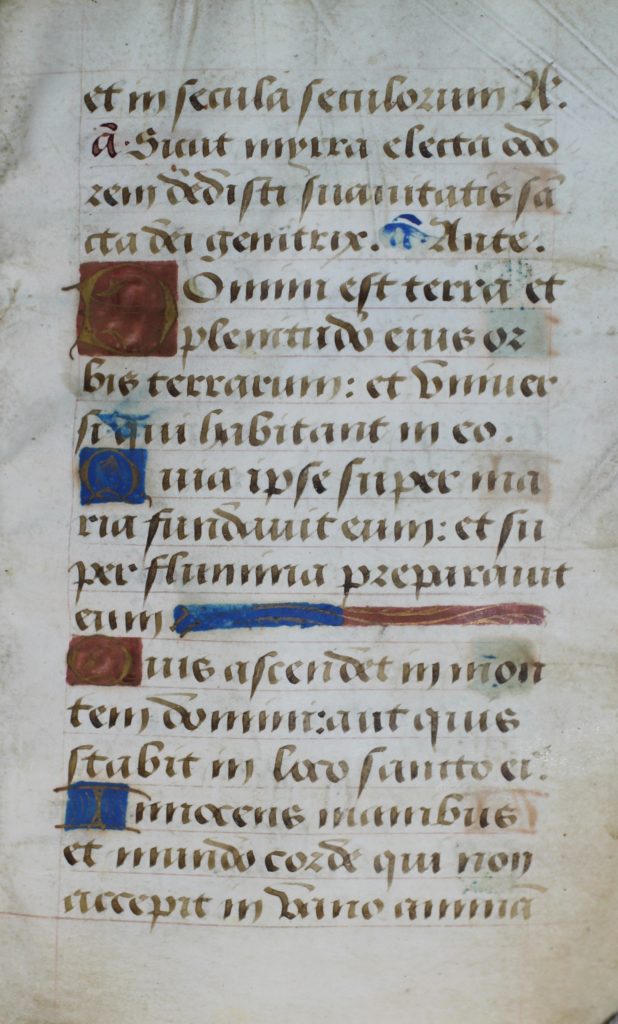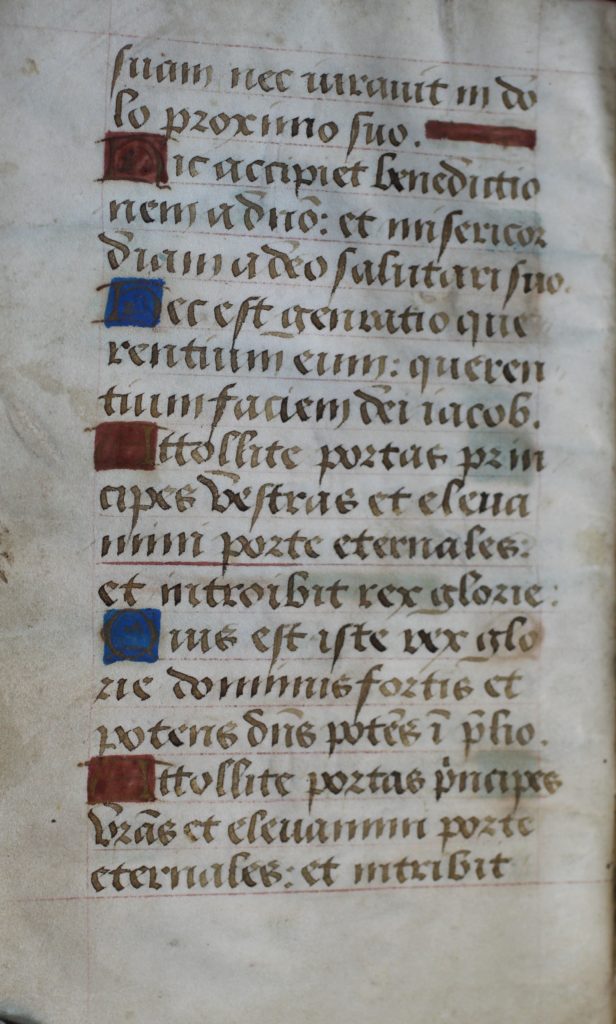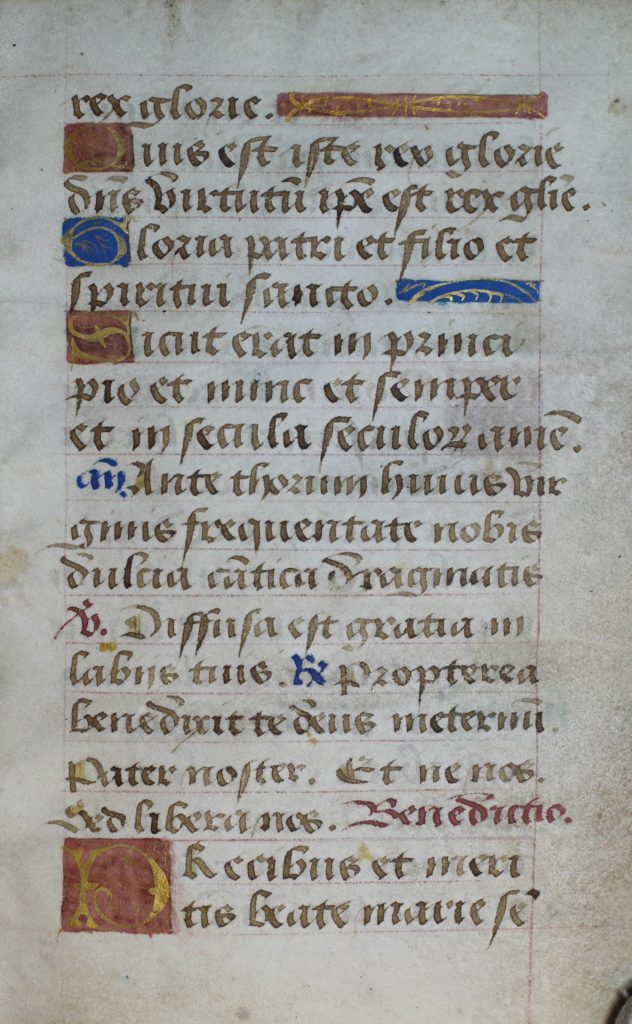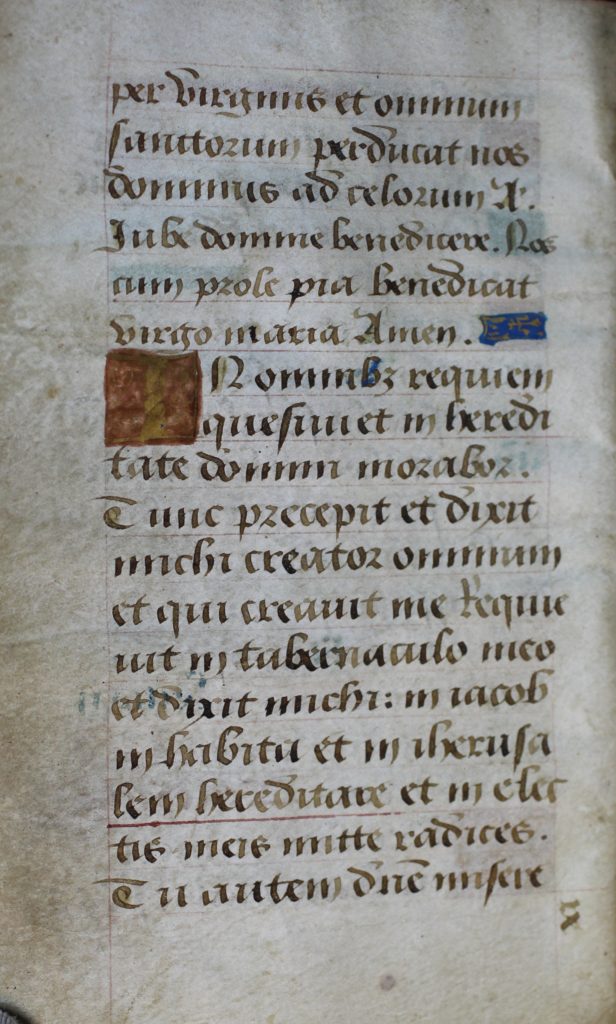The translation and transcription of this Book of Hours is provided by Ms. Lauren Milburn exactly as she had it written for her capstone project which was worked on during the years 2011-2012.
Primarily the text of this book of hours is written in a brown ink, but the directions for the user were written in blue and red ink which has also included in the translation and transcription. These directions occur when a part of the text was to be not prayed during a certain liturgical season.
Abbreviations:
A. = antiphon: psalm or hymn that is sung by two choirs alternatively
Ben. = benediction: blessing
Cant. = canticle: sacred chant from scripture
D. = directions
Inv. = invitatory
Les. = lesson
Or. = oration
Ps. = psalm
R. = response
V. = versicle: a line of exclamation preceding a response
Dnē= Domine
Dn̄s=Dominus
Formatting:
[= ] = words that were contracted or separated by a hyphen.
< >= indicates a word or part of a word that should not be present.
• Vowels that have a macron (i.e. ā or ē) are words that should end with either the consonant “m” or “n.”
• The vowel “e” at the end of a word often denotes an abbreviation for the dipthong “ae.” For example: “terre” is actually “terrae.”
